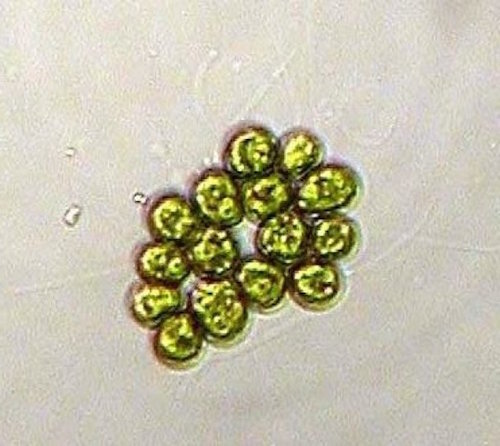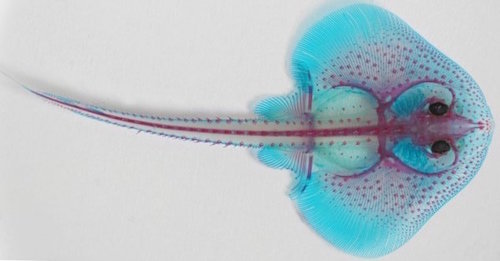Discovery Institute's Blog, page 72
April 29, 2016
The Magnetic Sense Is More Complex than Iron Bits

Many unrelated animals, from bacteria to birds, have tiny particles of magnetite in their bodies. For many years, biologists assumed that these magnetized bits of iron were the key to understanding the geomagnetic sense in migrating organisms: cells sense the torque of these iron crystals when they align north, like tiny compass needles. This theory, however, might be only part of the story. The real key may rely on proteins that respond with intrinsic iron atoms of their own. At least, that...
April 28, 2016
The Culture of Death Is Like the Universe

Once set in motion, it never stops expanding.
Euthanasia boosters, as we know, are so full of baloney. To get the death agenda adopted, they promise the moon, that medicalized killing will be strictly limited, and always restricted to competent adults. Then, once society widely accepts killing as an answer to suffering, the age limits drops -- because how in the name of compassion can a (now) "right" to die be limited to competent adults?
Belgium has already legalized assisted suicide for c...
The Curious Incident of the Non-Rafting Foxes
Blink and you might miss this unexpected bit of common sense, embedded in a NY Times article on adorable dwarf foxes native to California's Channel Islands ("Foxes That Endure Despite a Lack of Genetic Diversity"). How did they get there? They were evidently ferried thousands of years ago by Native Americans, who seemed to regard them as totem animals.
It's unlikely the foxes made the trip on their own; the islands are separated from the mainland by 12 to 70 miles of open ocean. Another clu...
Bats as Fighter Pilots
Bam! Bam! That's how fast a bat can hit two targets separated by different angles. Japanese scientists were intrigued at the accuracy of bats hunting their prey, so they decided to investigate. They found out something interesting. Bats can plan their attack trajectories to hit multiple targets in sequence with a minimum amount of energy. To do this, they have to focus their attention on multiple targets at once. And, as we all know, they do it primarily with sound, not sight.
Most hunting a...
April 27, 2016
The Evolution of Multicellularity, Explained? Not So Fast

This from researchers at the University of the Witwatersrand certainly sounds promising: "How and why single cell organisms evolved into multicellular life." We read:
Throughout the history of life on Earth, multicellular life evolved from single cells numerous times, but explaining how this happened is one of the major evolutionary puzzles of our time. However, scientists have now completed a study of the complete DNA of one of the most important model organisms, Gonium pectorale, a simple...
The Evolution of Multicelluarity, Explained? Not So Fast

This from researchers at the University of the Witwatersrand certainly sounds promising: "How and why single cell organisms evolved into multicellular life." We read:
Throughout the history of life on Earth, multicellular life evolved from single cells numerous times, but explaining how this happened is one of the major evolutionary puzzles of our time. However, scientists have now completed a study of the complete DNA of one of the most important model organisms, Gonium pectorale, a simple...
On Whale Origins, Evolutionary Biologist Goes After Dentist While Hiding Behind Family Doctor
At Why Evolution Is True, Jerry Coyne commends a video on whale evolution by Jon Peters, a family physician in Portland, Oregon, as a challenge to Don McLeroy, a dentist in Bryan, Texas:
To the battle of the local healthcare providers, Dr. Coyne, evolutionary biologist at the University of Chicago, adds this:
[Dr. Peters's video is] especially useful as ammunition against those who claim that microevolution occurs but not "macroevolution" -- usually defined as the evolution of one "kind" of...
Lawyer, Scientist, or Animal? Choosing Between Evolution and Human Reason

In a post for the NPR blog 13.7, UC Berkeley psychologist Tania Lombrozo asks, "Is the Mind's Approach More Like a Scientist or a Trial Lawyer?" She praises advances toward greater scientific objectivity, suggesting this holds promise that humans can overcome their natural biases. But the case for scientific objectivity only makes sense in a context where we can trust our reason. And guess what? That's an assumption more compatible with intelligent design than with an evolutionary framework....
Gegenbaur Revisited: Assessing the "Limbs from Gills" Scenario

Science Daily announces:
Sonic hedgehog gene provides evidence that our limbs may have evolved from sharks' gills
Latest analysis shows that human limbs share a genetic programme with the gills of cartilaginous fishes such as sharks and skates, providing evidence to support a century-old theory on the origin of limbs that had been widely discounted.
An idea first proposed 138 years ago that limbs evolved from gills, which has been widely discredited due to lack of supporting fossil evidence,...
April 26, 2016
Transhumanists Want to Be Gods

It is always fun to see what our resident technology-worshipping religious fanatics -- the transhumanists -- are up to. For those who don't know, transhumanism is a futuristic social movement -- eugenic in nature -- that seeks to use biotech, cyber tech, and every other kind of tech to transform humans into a "post-human" species.
The movement's goals are right out of a teenage boy's wish list: to live forever with superhero type powers. Take a gander at this by transhumanist proselytizer Zo...
Discovery Institute's Blog
- Discovery Institute's profile
- 15 followers






